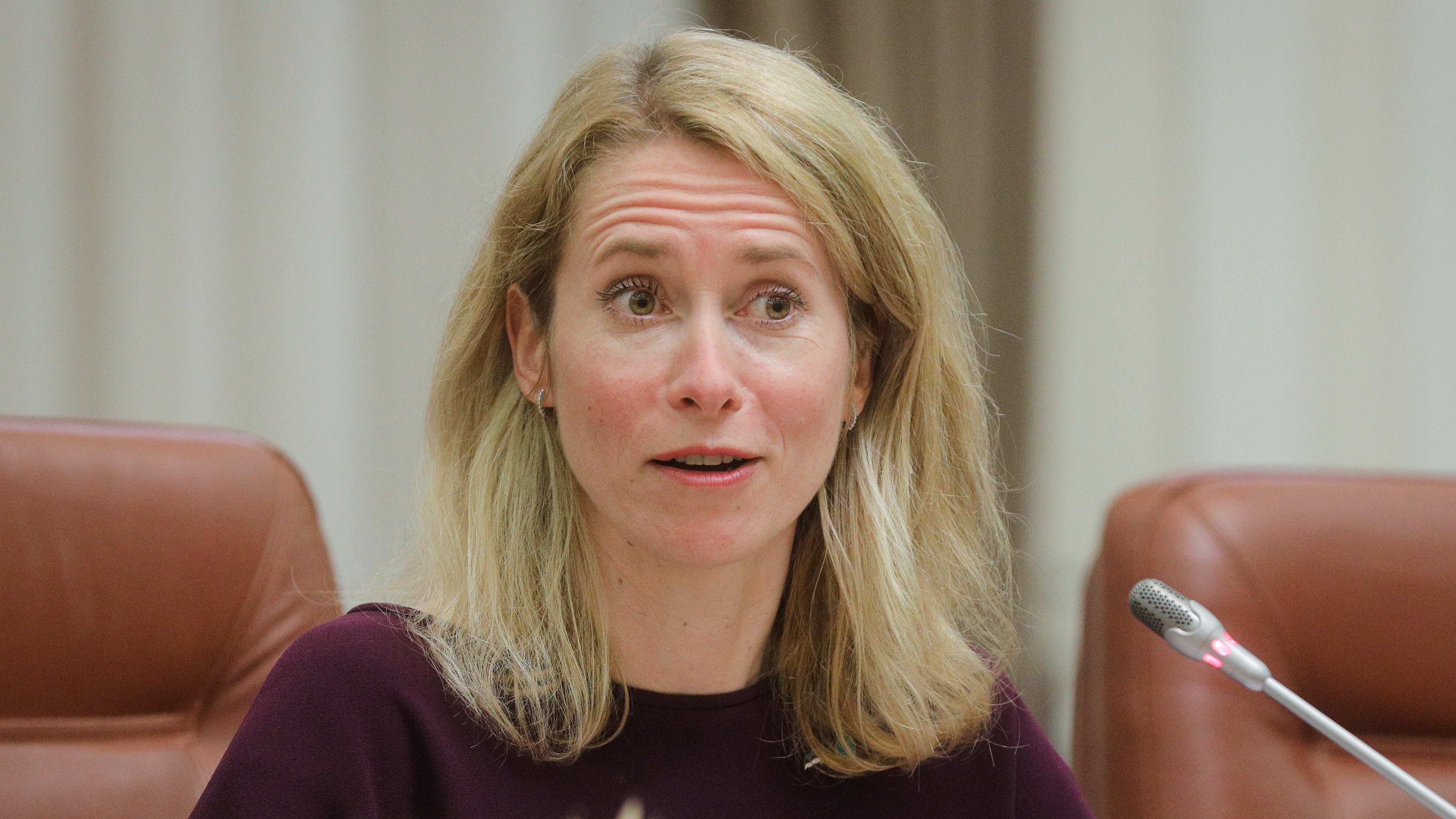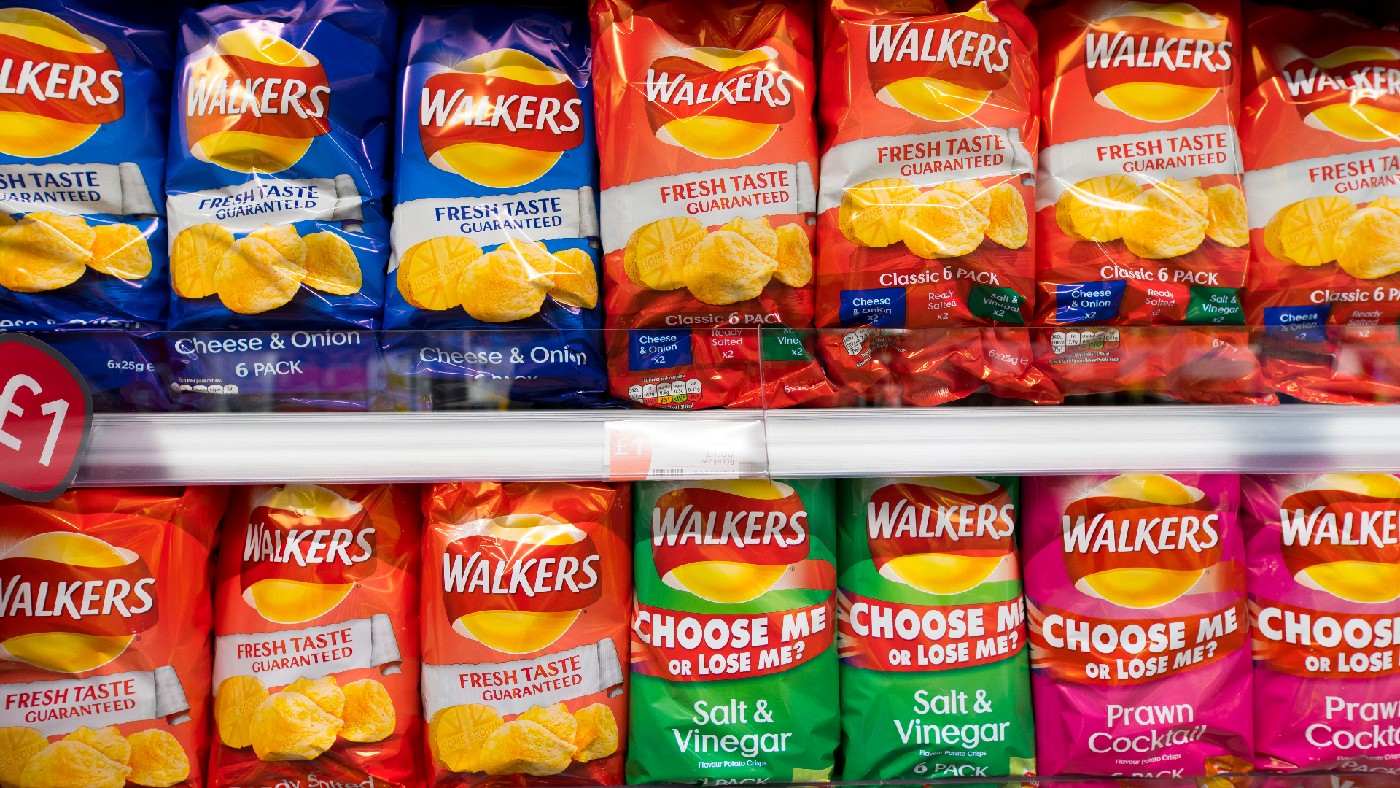Tata Steel strikes £550m deal to solve pensions riddle
Agreement will clear path for company to merge UK assets with ThyssenKrupp of Germany

A free daily email with the biggest news stories of the day – and the best features from TheWeek.com
You are now subscribed
Your newsletter sign-up was successful
Tata Steel full nationalisation still on the table
7 July
A full nationalisation of Tata Steel UK is still an option if its Indian parent company fails to find a buyer and pulls the shutters down on its business, says Anna Soubry, the minister for small businesses.
Giving evidence to a joint parliamentary committee on the steel crisis, Soubry told MPs: "You can be assured we looked at all options and one of those was whether or not - my phrase - to ‘buy it for a quid’."
The Week
Escape your echo chamber. Get the facts behind the news, plus analysis from multiple perspectives.

Sign up for The Week's Free Newsletters
From our morning news briefing to a weekly Good News Newsletter, get the best of The Week delivered directly to your inbox.
From our morning news briefing to a weekly Good News Newsletter, get the best of The Week delivered directly to your inbox.
She added: "When you make political determination that you’re going to keep at least one of the blast furnaces [at Tata’s Port Talbot steelworks] open, you look at all options."
Committee member Stephen Kinnock, whose constituency covers the South Wales plant, asked if the option of temporary full nationalisation was still "on the table" as a last resort, to which Soubry repeated that "all options" were still being considered, reports The Guardian.
According to the BBC, Tata will announce on Friday that it is "pausing" the sales process to allow the company to consider its options after last month's EU referendum.
It is still expected to press on with the sale of its specialty steel-making business, which employs 2,000 employees in Hartlepool, Rotherham and Stocksbridge, in Sheffield.
A free daily email with the biggest news stories of the day – and the best features from TheWeek.com
ITV News adds there is now "only one bidder left with any serious chance" of securing a deal for the remaining assets – Sanjeev Gupta's Liberty House, which wants to radically revamp the Port Talbot works and replace the two blast furnaces with an electric arc furnace to process scrap steel.
Again, however, sources say a buyout is "unlikely any time soon" and that the Tata board is expected to decide tomorrow to "keep running their UK business for the foreseeable future".
The outlook is improving for steel, as global prices rise and a tumbling pound boosts export prospects. It has been estimated that Tata's UK arm, which was making losses of £1m a day, made a profit of £15m in the last quarter.
But the BBC notes that without a clear, final decision, the developments will mean "the future of the rest of the 9,000-strong workforce [remains] unclear."
Tata Steel gets renewed pledge on government aid
05 July
Amid a wave of political turmoil unleashed by the EU referendum last month, ministers are keen to show there is still a firm hand on the wheel.
In the business arena, one area of particular concern is the ongoing sales process for Tata Steel's UK assets, on which rests the fate of 11,000 jobs and the country's primary steelmaking capability.
Government representatives had been meeting "daily" with the Indian-owned company and were thought close to agreeing a deal that would see the firm scrap the sale and stay on as owner. But that is all now up in air in the wake of the EU vote.
Specifically, there are doubts that promises on financial aid would be honoured, that controversial pension scheme changes will be pushed through and over the firm's trading position outside the EU in general.
On the first of these worries, at least, the business department has offered fresh assurances. A statement to the Financial Times confirms a package of financial support continues to be on the table.
This means the government is still pledging to contribute equity and take a 25 per cent stake in any buyout – and to provide loans on a commercial basis to fund turnaround plans. These offers extend to Tata, if it decides to stay on.
Will this be enough to persuade the company to move on with a final decision, after it was reported by the Daily Telegraph this week that it had "pulled back" from the sales process?
A source told the FT Tata is now "recalibrating" its figures, indicating that the outcome will at least be delayed. It will be weighing up whether the question mark on tariffs for EU exports is sufficiently offset by an export-boosting slump in the pound.
Perhaps more importantly, the source added that the company remains concerned that its contacts in power government will now change – and with them, the stance on the steel sector.
It is waiting to see if a new prime minister will push ahead with the controversial changes to the £14bn pension scheme and with relief on energy costs.
A Tata spokesperson said the strategy review of its UK business was continuing and that the company would be "considering implications from the referendum".
New Tata Steel rescue bidder claims Brexit is a boon
30 June
Tata Steel is said to be in talks with a last-ditch bidder for its stricken UK assets.
City financier Ed Truell has "opened talks with Tata Steel, the Pensions Regulator and the Treasury", reports The Times.
And it appears he thinks the business's prospects have been boosted by last week's vote for Brexit.
So far the prevailing view has been that the decision to leave the European Union, where Tata's UK arm sends 40 per cent of its exports, would be a disaster for any hopes of rescuing the 11,000 workers the company still employs.
The vote is said to have led Tata to reconsider a U-turn on staying in the UK, while reports suggest several of the seven white-knight bidders – or the banks backing them – could now withdraw their interest.
However, Truell told City AM: "Brexit has made the business a lot more attractive to potential buyers... that has certainly enhanced my thinking."
By leaving the EU, he added, Britain would be in a position to impose more protective import tariffs on cheap Chinese imports and more directly support its steel sector to compete with heavily-subsided EU competitors.
Truell also cited benefits to producers from the weaker pound, which, since the vote, has twice hit a 30-year low against the dollar before recovering slightly since Tuesday.
The former chairman of the London Pension Fund Authority, who made his name as a private equity investor, plans to take on Tata Steel UK for £1 - and then sell it off piecemeal to "buyers that have been queuing to make an offer… without the pension fund millstone".
In order to resolve the problem of the pension deficit, Truell would keep the £14bn scheme in the remaining shell company and take out "risk insurance and… hedges in the reinsurance market" to cover future liabilities.
This would avoid having to change the law to reduce future payouts, but would require the government and Tata acting as guarantors.
Getting such assurances represent what The Times refers to as "substantial hurdles" for the plan. The proposal does, however, mean that controversial reforms that have been criticised by the Pension Protection Fund are no longer needed.
Tata Steel rescue still all about the pensions
28 June
Tata Steel's rescue might not, in fact, have been derailed by the vote for Brexit, but a huge challenge still remains for the government.
Tata's Indian parent company is still working on a deal with the government to keep its UK business, reports The Guardian, despite the threat to single market membership that could affect steel exports to the continent.
Several potential buyers are said to be considering pulling out of the bidding process over fears that the company's 40 per cent of sales to the EU might be lost.
However, it appears the situation has been helped by the pound's decline, as it makes exports cheaper and could boost overall overseas trade. A strong pound in recent years has been cited as one of the key problems for the industry.
The Guardian adds that sources indicate it is essential for the government to push through proposed reforms relating to the company's £14bn pension scheme, which remains the elephant in the room.
Its funding shortfall is at least £700m and as much as £7.5bn. Meeting future obligations is seen as prohibitively expensive.
A consultation that closed this month looked at the proposal to change the law to allow future pension payouts to be increased annually at a lower rate of inflation.
The problem is the plans are controversial – the industry bailout fund said they set a dangerous precedent – and the government is in flux. There is a real question over whether the Conservative administration has the authority and the wherewithal to conclude the process to Tata's satisfaction.
It has long been thought that a final decision by Tata would come next month, but a new prime minister will now be in place until September. Of course, Business Secretary Sajid Javid could press on regardless in the meantime.
Roy Rickhuss, the general secretary of the steelworkers' union Community, said: "The EU referendum result and the government turmoil that has resulted have placed new question marks over Tata Steel’s sales process and the trade unions need to understand what actions government will take to safeguard the future of UK steelmaking."
Tata Steel: Bidders could abandon talks after Brexit
27 June
Britain's vote to leave the European Union could mean the loss of the 11,000 jobs at Tata Steel's UK plants, Sky News reports.
The broadcaster says Tata is now much less likely to remain in the country, even despite government offers of support, and that "several" of the seven rescue bidders are set to pull out of the race to acquire the UK assets.
Sources close to the Indian-owned company said this "raised the possibility of putting its British business into some form of liquidation".
In particular, a joint bid from UK turnaround investor Endless and US billionaire Wilbur Ross could be abandoned. "Wilbur has been reasonably open that this deal is far less attractive if Brexit happens," a source told Sky.
"A number of other prospective buyers are understood to have similar concerns," the report adds.
The BBC says that even those bidders still keen might face the challenge of funding being pulled, as "banks and investors backing them" also consider the impact of Brexit.
Tata's steel operations are based around key plants in Wales, where its Port Talbot blast furnaces are based. Close to 70 per cent of Welsh steel exports are to the EU.
Voters in all of the towns where Tata Steel has a presence backed the Leave campaign by a clear majority. It had been argued that looser trade rules and fewer restrictions on government support might help the beleaguered industry.
But after the referendum result, Sky News points to concerns regarding "the potential impact of Brexit on global demand for steel, the robustness of new trade deals negotiated by the government, and the ability to sell steel produced in the UK in the European single market".
There are also suggestions that the weaker government in the wake of the prime minister's resignation on Friday could be unable to pass controversial reforms to Tata's £14bn pension scheme.
Without a law change to enable a £2.5bn cut to future liabilities, by linking future payments to a lower level of inflation, it is deemed the scheme, in deficit to the tune of £700m, is unsustainable without huge and prohibitive annual funding from a buyer of the business.
-
 Will increasing tensions with Iran boil over into war?
Will increasing tensions with Iran boil over into war?Today’s Big Question President Donald Trump has recently been threatening the country
-
 Corruption: The spy sheikh and the president
Corruption: The spy sheikh and the presidentFeature Trump is at the center of another scandal
-
 Putin’s shadow war
Putin’s shadow warFeature The Kremlin is waging a campaign of sabotage and subversion against Ukraine’s allies in the West
-
 Can the UK avoid the Trump tariff bombshell?
Can the UK avoid the Trump tariff bombshell?Today's Big Question President says UK is 'way out of line' but it may still escape worst of US trade levies
-
 Five years on, can Labour's reset fix Brexit?
Five years on, can Labour's reset fix Brexit?Today's Big Question Keir Starmer's revised deal could end up a 'messy' compromise that 'fails to satisfy anyone'
-
 Why au pairs might become a thing of the past
Why au pairs might become a thing of the pastUnder The Radar Brexit and wage ruling are threatening the 'mutually beneficial arrangement'
-
 Brexit: where we are four years on
Brexit: where we are four years onThe Explainer Questions around immigration, trade and Northern Ireland remain as 'divisive as ever'
-
 Is it time for Britons to accept they are poorer?
Is it time for Britons to accept they are poorer?Today's Big Question Remark from Bank of England’s Huw Pill condemned as ‘tin-eared’
-
 Is Brexit to blame for the current financial crisis?
Is Brexit to blame for the current financial crisis?Talking Point Some economists say leaving the EU is behind Britain’s worsening finances but others question the data
-
 How Brexit handed a ‘financial boon’ to former Soviet state Estonia
How Brexit handed a ‘financial boon’ to former Soviet state EstoniaIn Depth Around 4,000 companies have set up shop in member state since UK left EU, prime minister says
-
 Why the UK is suffering a Walkers crisps shortage
Why the UK is suffering a Walkers crisps shortagefeature Production issues have forced snack giant to prioritise most popular varieties